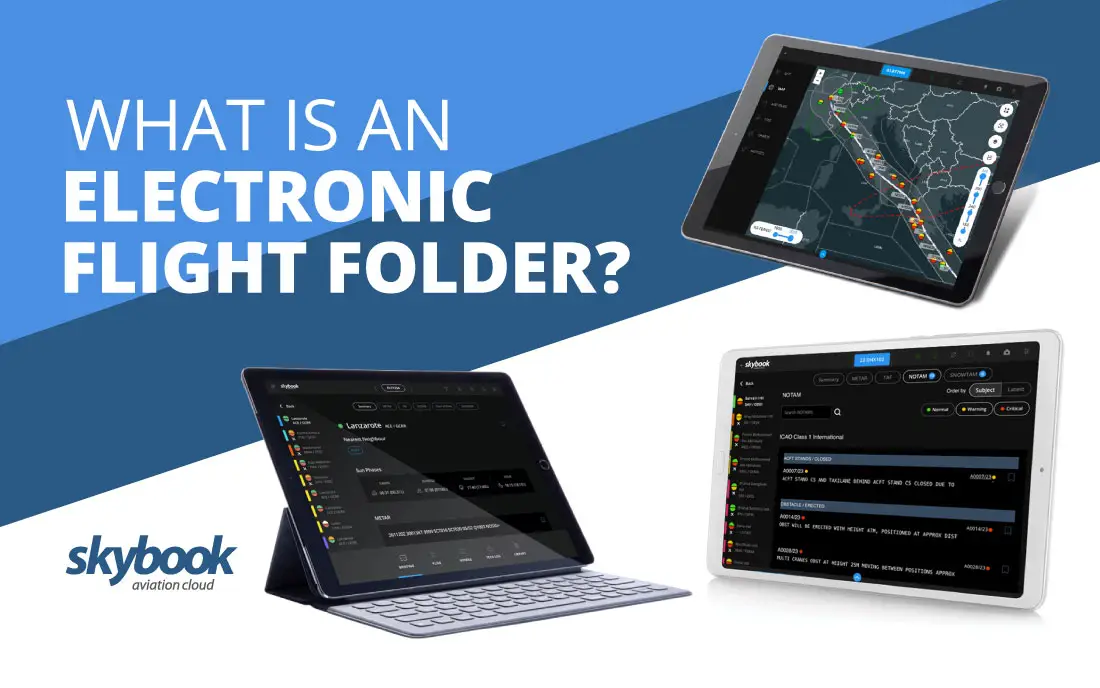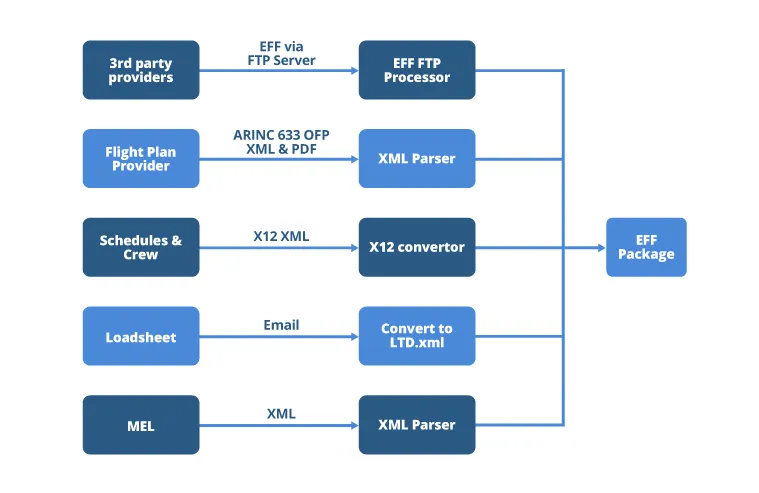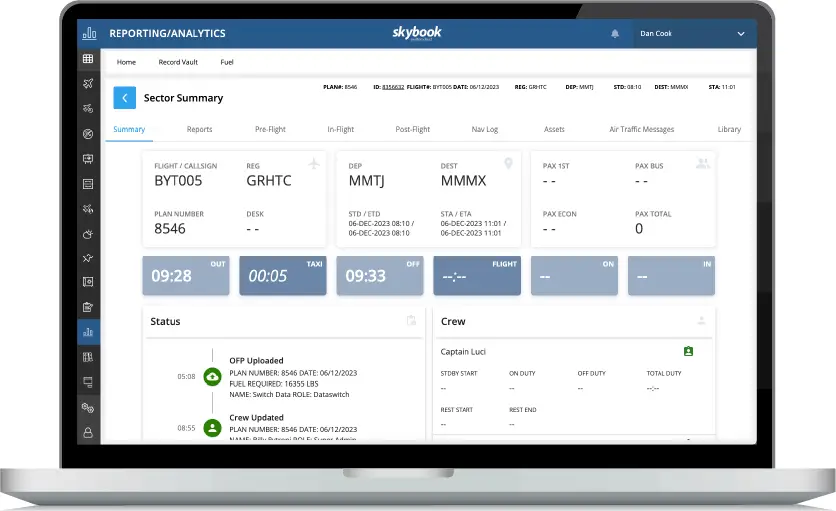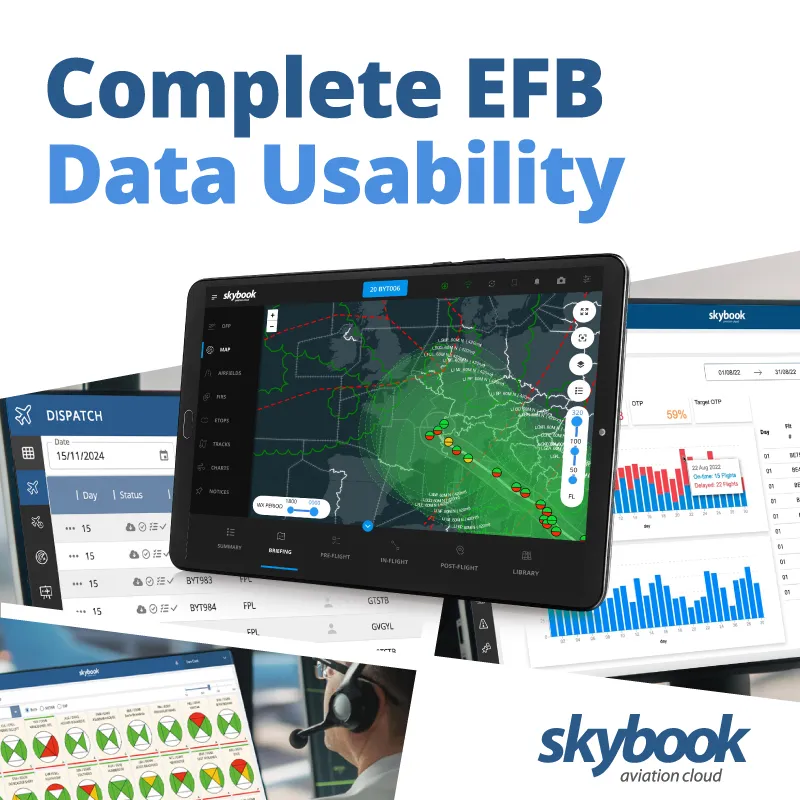
Why offline sign off matters on pilots EFB
The need for standardised data formats and seamless information exchange in the aviation industry, is critical to ensuring operational efficiency, regulatory compliance, and safety.
ARINC 633, plays a vital role in streamlining flight operations by defining how Electronic Flight Bag (EFB) applications manage and utilise flight information.
Specifically, the skybook EFB leverages ARINC 633 to generate industry leading tailored briefing packs, designed to meet the unique requirements of airlines and flight crews.
ARINC 633 is an industry-standard format established by Aeronautical Radio, Inc. (ARINC) that specifies the structure and transmission of flight operations data between airline operational control systems and EFBs.
This standard specifically defines the Electronic Flight Folder (EFF), a digital solution aimed at simplifying the distribution and management of essential pre-flight and in-flight data for pilots and airline operations teams.
This standard enables the electronic transfer of critical flight information, including:
By providing a consistent format for this data, ARINC 633 helps to ensure interoperability across various systems and reduces the reliance on paper-based processes.

Examples of various data formats used for file integration within an EFF package
By making full use of the ARINC 633 files, skybook is able to improve the workflow for pilots and flight operations. Here's some benefits of choosing skybook...
Customisable briefing packs
skybook leverages ARINC 633 to compile flight-critical data from multiple sources into a single, user-friendly briefing pack and interactive briefing on the EFB app.
Airlines can configure these packs to include the most relevant information, ensuring pilots have everything they need at their fingertips.
Real-time data synchronisation
With ARINC 633-compliant data exchange, skybook ensures that the latest flight updates, weather conditions, and operational changes are automatically pushed to the pilot's EFB device, reducing manual inputs and enhancing situational awareness.
Improved compliance and accuracy
The standardised format minimises errors and discrepancies in flight documentation, helping airlines maintain compliance with regulatory bodies such as the FAA and EASA.
The EFF information and files are also securely stored in our post-flight storage, and can be easily accessed on the flight summary and history data.
Seamless integration with other airline systems
skybook's compatibility with ARINC 633 files, ensure smooth integration with dispatch, crew scheduling, maintenance systems and so on, allowing for streamlined workflows and operational efficiency.
Here are a few other key ARINC standards associated with EFB applications & EFF:
ARINC 834 – Aircraft Information Server Standard (AISS)
Describes how EFB systems should interface with onboard and ground systems; and specifies data communication methods between the EFB and aircraft systems, including databases and sensors.
ARINC 665 – Loadable Software Standards
Establishes guidelines for loading software components into EFB systems and ensures consistent installation and update processes for EFB applications.
ARINC 827 – EFB Data Connectivity
Guidelines for secure data exchange between EFBs and ground systems and focuses on connectivity options such as Wi-Fi, cellular, and satellite communications.
ARINC 840 – Electronic Flight Bag (EFB) Application Control Interface
Specifies the standard interface for managing multiple EFB applications and data exchange; and defines common APIs for seamless integration with different airline operational systems.
ARINC 618 – Air/Ground Character-Oriented Protocol Specification
Used for data link communications between the aircraft and ground stations, and supports data transmission related to EFFs, such as operational flight plans and weather updates.
ARINC 620 – Data Link Ground System Standard and Interface
Provides guidelines for communication between airline operations and EFBs via ACARS (Aircraft Communications Addressing and Reporting System); and helps in transmitting EFF-related data such as dispatch releases and operational updates.
ARINC 622 – ATS Data Link Applications
Focuses on communication between EFB systems and air traffic services (ATS); and relevant for EFFs as it supports data transfer, such as NOTAMs, flight plans, and weather reports.
As airlines continually develop their digitalisation strategies, the adoption of standards such as ARINC 633 format remains crucial.
The skybook EFB and Ground Portal is at the forefront of this transformation, ensuring that airlines can deliver comprehensive, up-to-date, and enhanced briefings to their flight crews effortlessly.
By utilising ARINC 633, skybook provides airlines with a powerful solution to enhance flight operations, reduce workload, and improve overall efficiency.
Want to learn more about skybook and how it can enhance your airline operations with ARINC 633?
Get access to our latest news & skybook updates